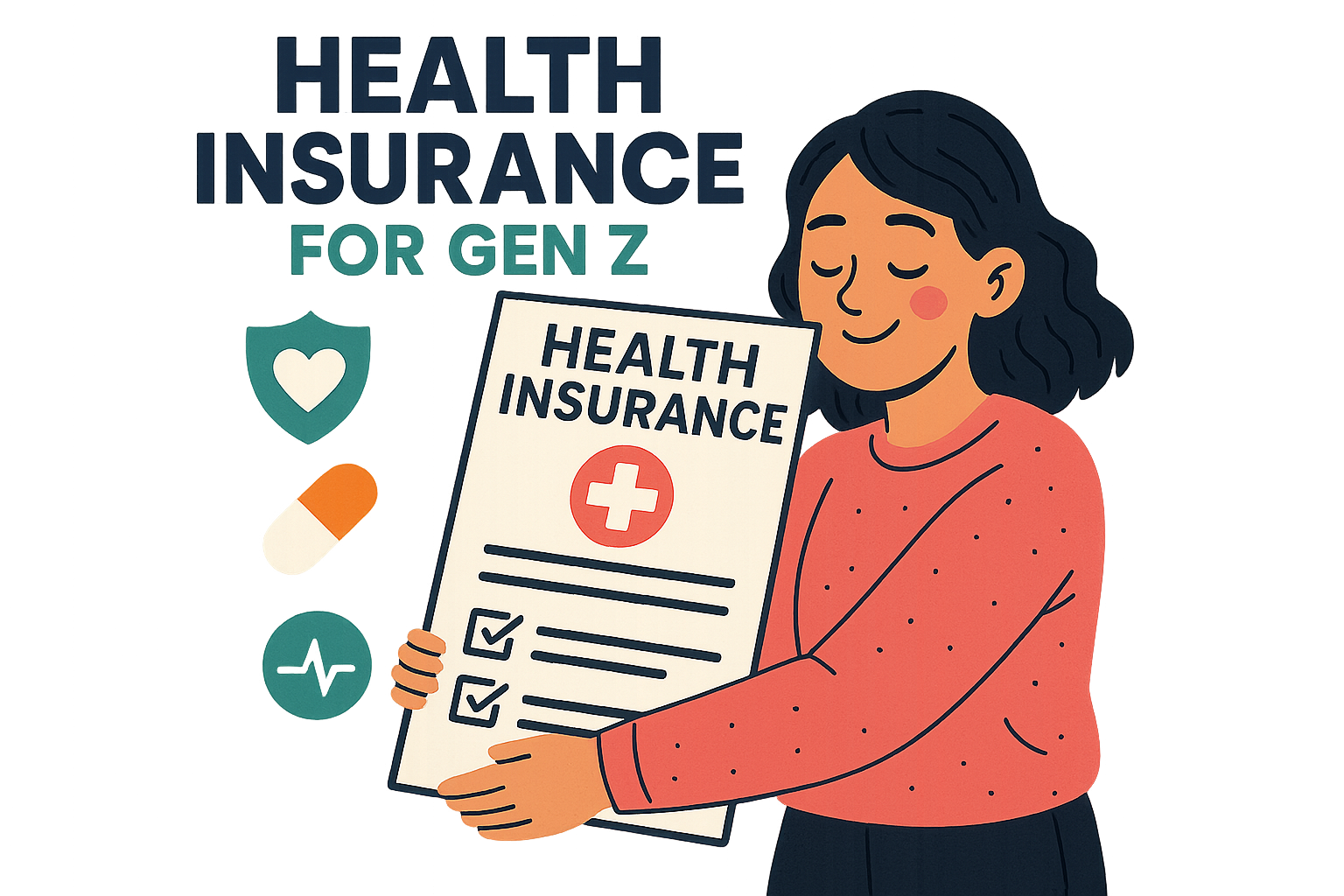Health Insurance for Disabled




Simran is an insurance expert with more than 4 years of experience in the industry. An expert with previous experience in BFSI, Ed-tech, and insurance, she proactively helps her readers stay on par with all the latest Insurance industry developments.
Reviewed By:

Raj Kumar has more than a decade of experience in driving product knowledge and sales in the health insurance sector. His data-focused approach towards business planning, manpower management, and strategic decision-making has elevated insurance awareness within and beyond our organisation.
Updated on Jul 09, 2025 4 min read
Health Insurance for Disabled Person
The need for suitable health insurance cover has been underscored by the fact that rising inflation has increased healthcare costs. In the absence of sufficient health coverage, facing a medical emergency can increase stress - mentally, physically, and financially.
More so is the case if an individual is disabled and needs financial coverage for his/her medical needs. In India, according to the National Statistics Office (NSO), as of December 2018, 2.2% population in India is suffering from some form of disability.
Many disabled members are physically and financially dependent on their family members; hence they must get adequate insurance cover for their health needs. Let us first understand the different types of disabilities plaguing people in the world.
Types of Disabilities
In India, a person needs to be at least 40% impaired to be considered as a disabled person under the Persons with Disability (Equal Opportunities, Protection of Rights and Full Participation) Act, 1955. Individuals who suffer from more than one kind of disability, or are more than 80% impaired, are referred to as severely disabled. Following are the major types of disabilities into which disorders are classified:
1 Congenital Disabilities
Congenital disabilities, also known as birth defects, or congenital anomalies, are functional disorders that occur right from when an infant is born. While some congenital defects are detected prenatally, in many cases, infants are diagnosed with such defects later in their infancy. Many of these abnormalities are caused due to genetic factors, while some are caused due to socio-economic or demographic factors. In many cases, these are also caused due to the environmental factors that impacted the mother during her pregnancy. Many health insurance companies do not provide cover for people with congenital defects, as insurance is a product that covers people from unknown risks and uncertainties.
However, on February 26, 2018, a ruling by the Delhi Court stressed that insurance companies cannot deny health insurance simply based on a person possessing congenital disorders. Before 2016, all congenital defects were included in the exclusions, however, after the IRDAI's 2016 health insurance regulation, only those congenital defects are excluded which are external and visible on the main parts of the body. Genetic disorders which are not curable, and have been present from birth are not covered. Each differently-abled person who fills the insurance policy form has to expressly state the nature of the disease, so the insurance company can make a decision based on whether the disorder is curable, recurring, etc. and will decide the premium and waiting period accordingly.
2 Accidental Disabilities
Accidental disabilities are those which occur after a person meets with an accident. According to the terms used in insurance, an accident can result in either total, partial, or temporary disabilities, and all these types are covered by health insurance companies in India. Data shows that a person dies an accident every four minutes, and a serious road mishap occurs every minute in India. This underscores the importance of accident insurance.
3 Mental Disabilities
Mental disabilities are those that irreversibly impact the mood, thinking, and the mental balance of a person. As of 2017, 197.3 million people in India have some kind of mental disorder. Mental healthcare was not a part of health insurance until the Mental Healthcare Act was passed in 2017. According to Section 21(4) of the act, "every insurer shall make provision for medical insurance for treatment of mental illness on the same basis as is available for the treatment of physical illness." Some insurance companies have started providing cover for mental illnesses; however, providing adequate cover is quite difficult due to the difficulty in ascertaining the degree of a mental disorder, and thus pricing is to provide a standalone product.
Due to these reasons, insurance companies generally do not provide a specific mental illness plan but do cover mental illnesses in some of their best health insurance plans. Most of these health insurers provide in-patient hospitalization, and outpatient hospitalization, therapy, and counselling (if the plan offers OPD benefit). If an individual is looking for a mental illness cover, (s)he needs to check if his/her disorder needs hospitalization or simple therapy and counselling, and select a plan accordingly. If any individual has a pre-existing mental disorder, insurance companies choose to provide a suitable waiting period to cover it. If the risk of morbidity and the severity of the disorder is high, the insurance company may decide to refuse the cover.
How is Eligibility Determined?
State Of Health
As with any insurance policy, the health condition of an individual is of utmost importance to check if the individual suffers from any pre-existing complications. The premium amount is calculated based on the risk that is determined by the state of health of an individual. For differently-abled individuals, the insurance company may check the health condition of the previous few months and establish the extent and degree of the risk that the insurance company needs to take. Based on this, the company may approve or reject the coverage.
The family's earning capacity
An insurance policy is issued based on the earning capacity of the family to which the dependent insured belongs. Many insurance companies take note of the family income to decide the cover and the premium. Based on the bank account statements of the previous few months, the insurance company decides the premium payment capacity and the total coverage.
Insurance Schemes By The Government For The Disabled
-
Niramaya Health Insurance Scheme
The Niramaya Health Insurance Scheme is a comprehensive insurance plan launched by the National Trust for individuals suffering from disorders such as Cerebral Palsy, Autism, Mental Retardation, and Multiple Disabilities. This scheme is available in the country except for Jammu & Kashmir, and no pre-insurance tests are needed for it. All individuals need to enrol with the National Trust to avail of this insurance policy.
Features of the plan:
Eligibility No age limit (valid disability certificate and enrolment with The National Trust is mandatory) Coverage Rs. 1 Lac Expenses Limit Hospitalization expenses limit: Rs. 70,000
OPD expenses limit: 14,500
Ongoing therapy complications: Rs. 10,000
Alternative Medicine Limit: Rs. 4,500
Transportation costs: Rs. 1,000Premium Family income less than 15,000: Rs. 250
Family Income more than 15,000: Rs. 500 -
Swavlamban Health Insurance Scheme
The Swavlamban Health Insurance Scheme was launched by the Government of India on 2nd October 2015 to provide a comprehensive cover to the beneficiary and his family. This is a tailor-made policy issued by New India Assurance Company that provides health coverage to people suffering from blindness, low vision, leprosy-cured, hearing impairment, loco-motor disability, mental retardation, and mental illnesses.
Features of the plan:
Eligibility 18-65 years, with illness certified by the competent authority Family Income Limit Less than 3 Lacs per annum Coverage Rs. 2 Lacs Premium Rs. 3,100 p.a
(only 10% will be collected from the insured)People Covered Disabled person, spouse, and two children Documents required 1. Proposal form
2. Premium Payment Receipt
3. Income certificate
4. Identity Proof
Tax Benefits
While filing the income tax returns, individuals can claim income tax deduction either as a disabled person or as individuals who have disabled people to support. If an individual suffers from a 40%-79% disability, he can claim a deduction of Rs. 75,000 per year. Whereas, people with more than 80% disability can claim a deduction of Rs. 1,25,000.
The deductions for disabled individuals are explained under Section 80DD and 80U of the Income Tax Act, 1961. Under Section 80DD, an individual can claim deduction on the part of the income spent on the medical treatment of dependent disabled individuals in their homes. The individual can also claim a deduction for any premium paid against disability insurance policy for his/her disabled family member. Under Section 80U, a disabled person can himself/herself claim a tax deduction for medical expenses.
To avail these tax benefits, the following documents need to be submitted:
- A medical certificate that describes the extent and type of disability
- Form 10-IA in case of autism, cerebral palsy, or other multiple disabilities
- Self-declaration certificate of the expenses incurred on the medical treatment
- Premium payment receipts
Conclusion
Differently-abled individuals have the right to live a life of joy and satisfaction, and a suitable health insurance cover will ensure that all the financial and medical needs of these precious individuals are taken care of.
Consult for Personalized Insurance Advice

But how does it work?
Schedule a call with India’s number 1 trusted advisor with a 4.5+ rating on Google. We are not your average insurance agents. Our advisors are experts in their insurance knowledge and will give you the right information at the right time. The service is free of cost! Don’t worry, we won’t spam as we value your time.
Health Insurer Network Hospitals
Health Insurance for Disabled: FAQs
1. Is there Disability Insurance in India?
Yes, most disability insurances cover an individual for entire incapacity due to an accident, whether temporary or permanent. If you become totally and permanently incapacitated, you will receive the entire sum covered under the permanent disability insurance plan.
2. Is health insurance free for disabled people in India?
No, health insurance is not free for disabled persons in India. There are 2 Government Health Insurance schemes that offer low-cost health insurance in India. Namely, Niramaya Health Insurance and Swavlamban Health Insurance.
3. Is depression considered a mental disability?
Yes, depression is a mental disability with multiple health plans offering coverage against mental illnesses such as bipolar disorder, anxiety, and other diseases. A policyholder must refer to policy wordings thoroughly before investing in any such health care plan.
4. What is the additional coverage offered under Niramaya Health Insurance?
Niramaya health insurance plan covers medical bills, diagnostic tests, dental check-ups, etc. apart from disability treatments.
Health Insurance Companies
Know More About Health Insurance Companies
Share your Valuable Feedback
4.4
Rated by 2635 customers
Was the Information Helpful?
Select Your Rating
We would like to hear from you
Let us know about your experience or any feedback that might help us serve you better in future.


Written By: Simran Kaur Vij
Simran is an insurance expert with more than 4 years of experience in the industry. An expert with previous experience in BFSI, Ed-tech, and insurance, she proactively helps her readers stay on par with all the latest Insurance industry developments.




















Do you have any thoughts you’d like to share?